Better Relationships
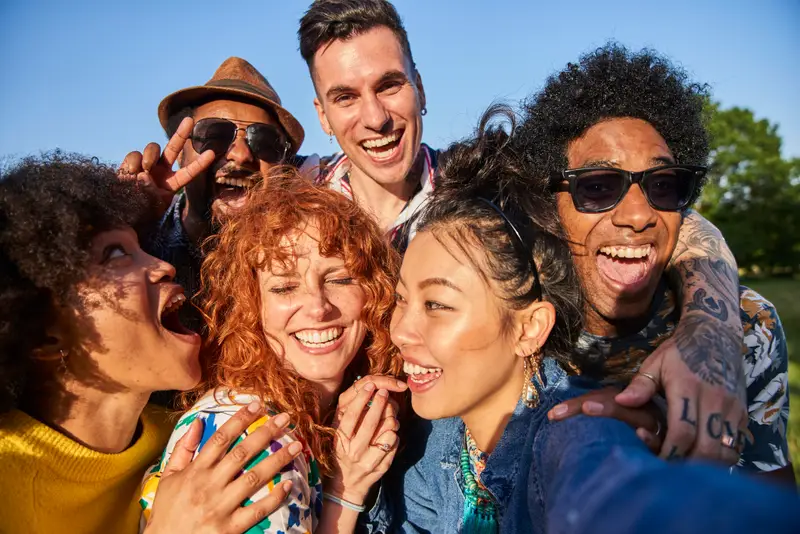
Relationships are the Key to Happiness and Well-being
In our busy lives, it’s easy to overlook the significance of who we are connected with. Research has shown that the quality of our relationships is the primary factor that influences our sense of well-being. From emotional support to physiological benefits, positive relationships are essential for maintaining good mental health and overall well-being.
The Importance Of Human Connection
The Harvard Study of Adult Development,1 a comprehensive long-term investigation, has revealed a stark truth: healthy relationships are not just a source of happiness but also a key to longevity. The absence of quality connections, or worse, the presence of toxic ones, can significantly diminish our joy and potentially shorten our lifespan. This highlights the significance of the relationships we cultivate, as they play a crucial role in our well-being and overall life satisfaction.

Emotional Support
Relationships provide a sense of belonging and support, increasing a person’s positivity and self-worth. When someone doesn’t have anyone who is supportive and believes in them, it negatively impacts their self-worth and sense of worthiness as a human being.
Consider a scenario where a person has an important relationship with someone argumentative, who fails to provide emotional support and frequently makes discouraging remarks. In such cases, the individual may gradually start to feel unimportant and begin to doubt their abilities, leading to a diminished sense of self-worth and value.
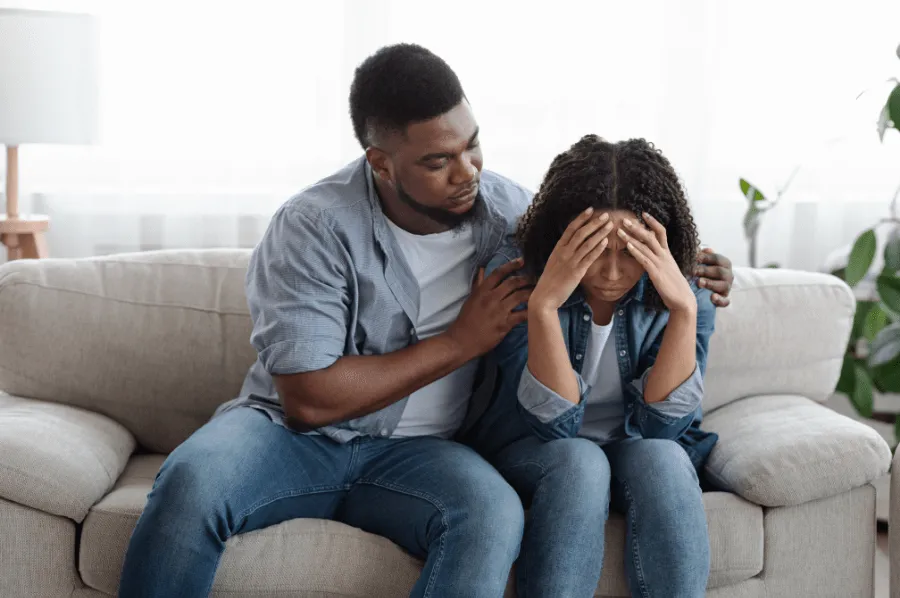
Terminating or limiting relationships that repeatedly hurt us and placing effort into establishing positive connections that provide consistent emotional support are integral to developing and maintaining healthy self-esteem.
Neurobiological Responses
Oxytocin is released during social interactions, triggering a calming response and counteracting the stress-induced ‘fight-or-flight’ reaction. This neurochemical process soothes the nervous system and promotes overall well-being. We are bombarded with fear propaganda in the news and on social media, which raises our cortisol levels and, thus, increases stress. Having relationships that provide a safe and positive experience, allowing us to laugh and enjoy each other’s company, helps us relax and feel good.
Evolutionary Perspective and Mental Health
Evolutionarily, humans are wired to seek connection for survival and reproduction. Our well-being is intricately linked to our social bonds from infancy to adulthood. Even introverted people can benefit from social connections. Whether your desire to socialize with others is high or low, there is no denying that human beings are not designed to live completely isolated and benefit highly from positive, healthy connections in many ways.

Four Questions To Help You Choose Better Relationships
When assessing who to have a friendship or close relationship with, as you are getting to know someone, it’s essential to ask yourself four questions…
1. Could They Have a Personality Disorder?
Before you get into a relationship with someone and share your soul with them, ensure they are not hiding any unhealthy or dangerous personality traits from you. A person’s mental health impacts everything they encounter, so if you are close to someone who is consistently unwell, how they treat you is something to pay attention to. Many people, and perhaps even most people today, occasionally experience one or more forms of mental illness, which makes sense because the state of the world is not judicious. As Krishnamurti famously stated, “It is no measure of health to be well adjusted to a profoundly sick society.”
So, it’s not a red flag if someone is mentally unwell, but it’s something to investigate thoroughly. Ask yourself, “Is this person manipulative or abusive in any way?” For example, are they controlling, patronizing, or dishonest? Do they act like they are always right, lack compassion, or speak badly about others and spread gossip? If so, then the person most likely has high narcissistic traits and may have undiagnosed narcissistic personality disorder (NPD). Sometimes, NPD can be covert, and people afflicted with this disorder can appear to be humble, altruistic, and kind…until you get to know them.
It takes time to get to know someone. In most cases, it takes at least one year to see someone for who they truly are. This is why it’s important not to open up too quickly or reveal too much about your personal life or struggles with new people and anyone you don’t know well. Individuals with NPD use the information they obtain to manipulate and potentially hurt people in the future if they don’t go along with their agenda. Some common traits of narcissists are that they speak negatively about others behind their backs, need to control everything, think they are more intelligent than others, and frequently place themselves in positions of power where people will be forced to engage with them. The more time you spend with them, the more you will learn that they lack empathy and believe they are better in some way than everyone else. Be aware that frequently, people with NPD can be very good at acting as if they care about you, especially at the beginning of the relationship; this is why it’s essential to keep in mind that it takes at least six months to one year to get to know someone’s true character.
Another personality type to be cautious of is empowered victims, who frequently share energetically heavy and personal information. They usually present themselves as rational, kind-hearted people who can do no wrong and often engage in inappropriate trauma-dumping, sharing personal details of their traumatic life events without knowing someone very well or checking to make sure that the person is open to having that kind of emotionally-charged conversation. An unsuspecting person might initially feel sorry for them and say things to encourage them to feel better or try to help them. Empowered victims never take accountability for their role in anything negative they have experienced. They crave attention and pity from others and take more energy than they give. It’s not uncommon for someone with Narcissistic Personality Disorder to be an empowered victim; this personality disorder is called ‘covert narcissism.’

2. Do I Feel an Equal Energy Exchange Between Us?
Everything is energy, and everything we do is an exchange of energy. For example, some activities, such as doing household chores, may reduce a person’s energy, but going for a long walk can increase it. Staying conscious of what gives and takes away your energy is essential. This philosophy should also be applied to individuals. After you spend time or converse with someone, notice how you feel…do you feel more energized than before you connected with them, or do you feel a bit more tired? Maybe you don’t notice either, meaning the connection was neutral for you. Ideally, we should pursue relationships with people who leave us feeling energized most of the time when we interact with them.
Sometimes, people take more than they give, which is a normal occurrence. We all have moments when we require more support and do not have the energy to give it back at that time. For example, what we are analyzing is: when looking at the last five times you communicated with someone, how often did you feel less energized after you connected with them? Keep in mind that when people go through a difficult period in their lives, they will probably require more emotional support than usual. Still, if they consistently seem to be having a crisis or need more energy than they are giving, this is important to notice.
Get into the practice of assessing your energy level after engaging with people. You’ll become aware that certain people energize and inspire you while others leave you feeling slightly drained and tired. People who commonly reduce your energy are taking more from you than they are giving, so a close relationship with them is not in your best interest. We only have a certain amount of time in our day and in our lives to connect with others, so choosing relationships that increase our stamina or, at the very least, do not frequently deplete our energy is essential.

3. Do They Respect My Boundaries?
Boundaries in a relationship help each person determine where one person’s responsibilities end and the other’s begin. In short, boundaries help us define what we are comfortable with and how we would like to be treated by others. They apply to any relationship you have – whether with a neighbour, friend, family member, partner, or anyone else in your life. Knowing your boundaries with others is essential to avoid getting into situations you don’t want to be in.
Most people will walk all over you if you don’t set reasonable boundaries. They’ll make demands of your time, energy, and other resources, leaving you feeling depleted and overwhelmed. Individuals who are deeply afraid of rejection or emotionally enmeshed with others are likely to have weak boundaries. People without boundaries often have anxiety issues.
Many people struggle to maintain and protect their boundaries because they don’t want to seem selfish, confrontational, or upset the other person. But if you want healthy relationships and good mental health, you must communicate with the people in your life what is acceptable and what is not acceptable to you.
You are responsible for telling people when they’ve done something you don’t like so they can learn how to treat you. You are not to blame for your boundary being crossed, but you are responsible for holding the boundary-crosser accountable. When your boundary is disrespected, it’s important not to grow resentful and disappointed; instead, you must speak up. If someone keeps dishonouring your boundaries, this is a sign that your relationship with them is toxic. If you would like help to establish and enforce your boundaries, book a complimentary Discovery Call here.

4. Are They Good For Me?
An excellent way to assess a potential friend or someone in your life you are considering investing your time and energy into is to ask yourself: How do I feel after being with them? Do I feel more positive about life and myself after I connect with them? Or do I feel worse? Check whether you feel happy and energized or upset and tired after spending time with them. Keep track so you can notice if there is a pattern. If someone often leaves you feeling drained or bad about yourself, that is a red flag and means you should stop getting close to them.
The goal is for you to be able to take all the necessary steps to protect your mental health. Ideally, relationships that aren’t in your best interest should be discontinued. However, if that’s not possible, then applying firm boundaries and reducing the amount of time you interact with them is crucial.
It’s also important to focus on the other person’s actions instead of their words; do they go out of their way to see you and do kind things to help you and others, or do they talk about how much they care, and expect you to do all the physical work in the relationship such as you constantly having to visit them because they can’t or won’t visit you? People who are good for you will go out of their way for you. They will compromise and not expect you always to be the one who makes your time together happen.
Often, in our family or at work, we encounter people who are not good for us, but we think we cannot end the relationship for various reasons. In that case, there are tips and tricks you can learn to protect yourself and limit the damage these people will do to you. Lia specializes in assisting individuals who are struggling with ending toxic relationships and restructuring and managing those they can’t walk away from. Book a complimentary Discovery Call here.

Positive Connections Equal Greater Wellbeing
Apart from romantic relationships, nurturing connections with family, friends, acquaintances, coworkers, and even strangers can cause positive neurochemical reactions.
Even brief positive interactions with neighbours or acquaintances can induce feelings of connection and well-being, highlighting the significance of everyday social encounters.

Four Hallmarks of Healthy Relationships
- Mutual Support: Healthy relationships thrive on mutual support and offer support during the good and the bad times.
- Authenticity and Vulnerability: Both people can express their genuine emotions and vulnerabilities to each other, fostering more intimacy and trust.
- Shared Experiences: Engaging in new and familiar experiences strengthens the bond and deepens the connection.
- Trust and Reliability: Both people trust each other and feel that they can count on the other to do what they say they will do.
Prioritizing Positive Connections
Be selective about who you choose to have a relationship with. Recognize and limit, or end (if possible), toxic relationships with others. Understand how critical it is to our mental health that we don’t engage with people who repeatedly hurt us. We should only invest in relationships that feel uplifting, nurturing, and safe. If you need help distancing yourself from difficult people or want to learn how to better manage your relationship with them, book a complimentary Discovery Call here.
Emotions are contagious. Surround yourself with positive people who help you feel good about yourself and your life. Step away from and avoid relationships that bring drama and chaos into your life, or confuse, upset, and frustrate you.
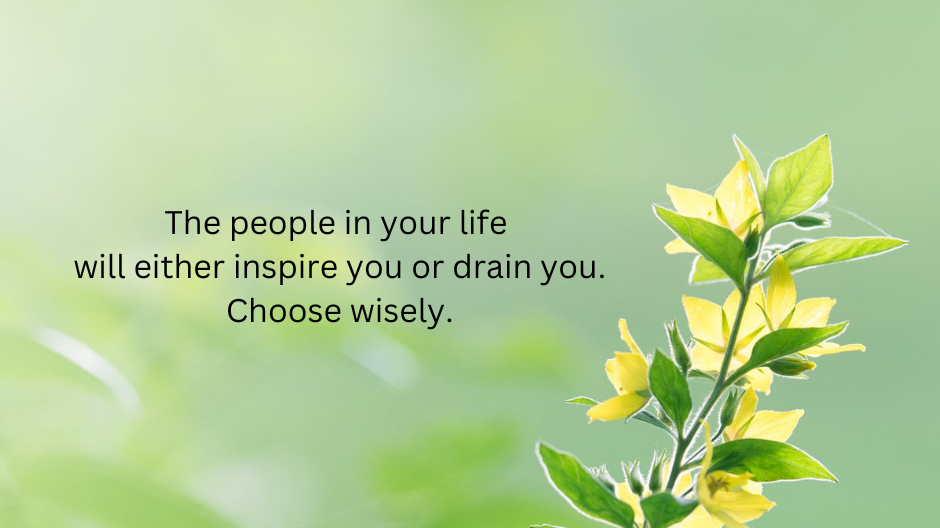
The Importance of Presence
We are in an era of constant distractions. Knowing how vital relationships are to our mental health, we should prioritize being present when interacting with others, actively listening, and honouring the connection.
When we regularly show up for our relationships by being fully present and avoiding distractions like social media, trust between us and the other person can be cultivated, and trust is a vital component of meaningful relationships.
The quality of our relationships is the most critical factor in achieving happiness and well-being. From the profound physiological effects of oxytocin released to the emotional support derived from meaningful connections, fostering and nurturing relationships with people who have our best interests in mind should be a priority in our lives.
Since we live in an age marked by digital distractions and increased mental health problems, we must recognize the importance of healthy relationships and avoid relationships that are not good for our well-being. We should also strive to develop and maintain ongoing relationships that bring comfort, inspiration, and uplift us.
We can increase our happiness by objectively assessing our relationships to determine which ones do not benefit our mental health and eliminate or significantly reduce those connections. Then, we can give more energy and presence to the relationships that energize us and increase our well-being.
If a person lacks healthy relationships, they should start trying to establish some new connections. This can be done through participating in new activities, volunteering, getting to know your neighbours, joining clubs and special-interest groups, or getting involved in situations where there will be an opportunity to meet others.
Sometimes, entering new situations can be daunting. I am here to support you in your existing relationships and help you form new ones.
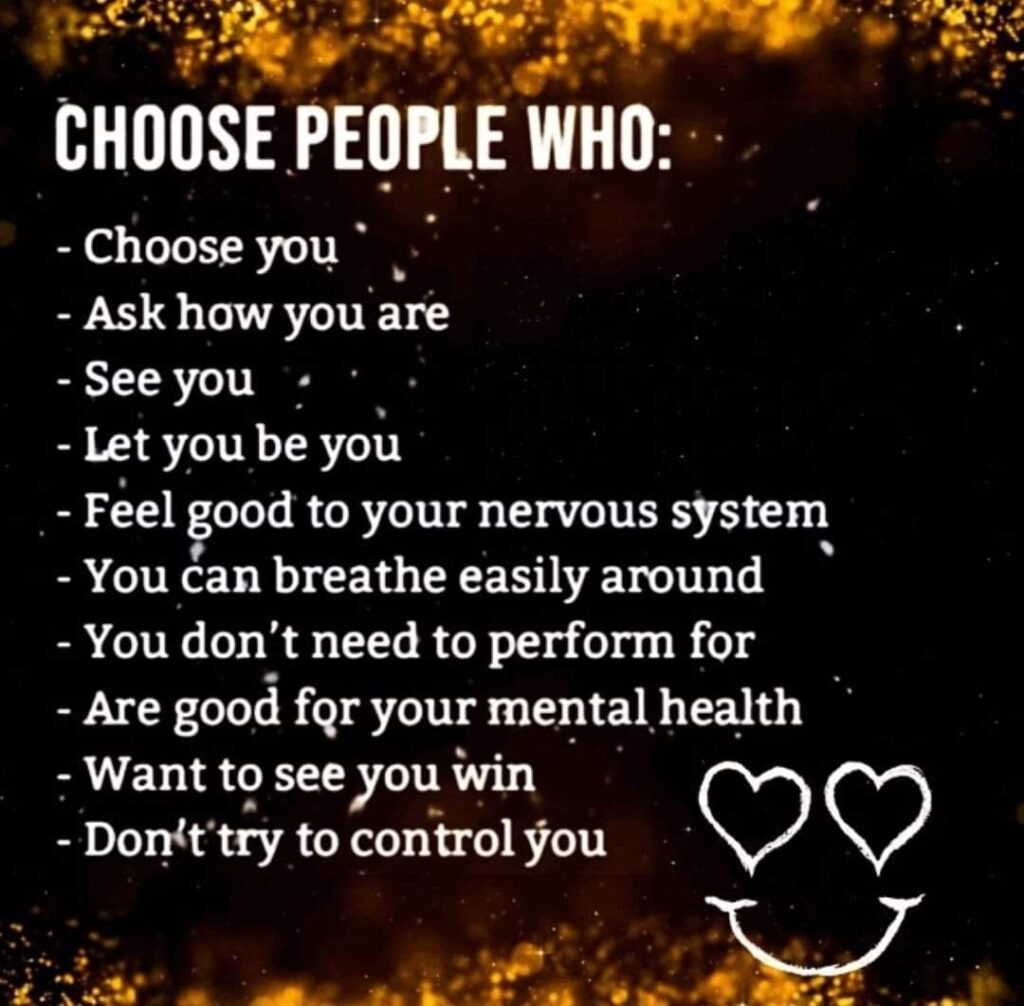
Happy Soul Path was created to help unique individuals have better relationships and achieve success in life.
I will share all the tips, tricks, and guidance you need to elevate yourself.
You’ll experience a ‘rebirth’ and have a fresh take on life, a second chance, which will allow you to achieve greater happiness and success.

If you are repeatedly hurt, disappointed, or frustrated because one or more of your relationships isn’t healthy and you haven’t been able to change things, you don’t have to struggle anymore…
I’ll give you the opportunity to explore your unique personality, gain insight into your relationships, set your goals, and learn strategies to achieve them, all while being supported in a confidential and nurturing space by someone who has been in your shoes.
Experience a Safe Space to Learn and Grow
Happy Soul Path Offers:
– Online Neurodivergent Counselling Sessions –
Experience a confidential, non-judgmental, and nurturing space for self-exploration in one-on-one online sessions with a neurodivergent counsellor.
Enjoy endless opportunities to explore the issues obstructing your path toward happiness.
Receive caring assistance while developing skills and using tools designed to increase your confidence as you move forward.
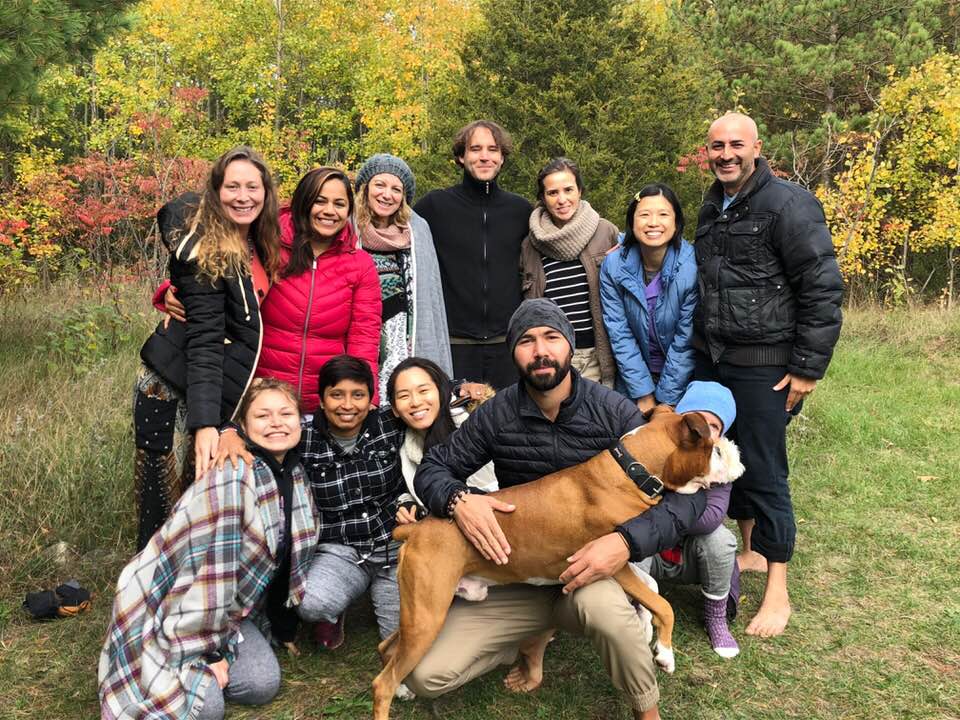
The quality of our relationships determines the quality of our lives.
One of the most remarkable aspects about getting support is its ripple effect. As you grow and change, your personal growth will positively impact all areas of your life, your relationships with others, and most importantly, the relationship you have with yourself, which sets the tone for every other relationship you have.
It’s common for conflicts in relationships to arise from misunderstandings, communication problems, lack of boundaries, past trauma, misalignment, and being involved with people who have undiagnosed personality disorders. Through counselling, you’ll gain a deeper understanding of yourself, the individuals in your life, and the hidden dynamics, as well as learn behaviour techniques and informed decision-making skills that lead to a happier life.
Who can benefit from Neurodivergent Counselling?
Whether you’re experiencing an inability to accomplish your dreams, having difficulty identifying what you want, or struggling with your partner, friend, child, adolescent, parent, or other family member, or you are dealing with challenges regarding friendships, intimate relationships, 2SLGBTQ+, parenting, or thinking about relocating; you will receive a safe and confidential space to focus on yourself and your goals, and help with moving forward in a way that feels right for you.

Areas that May be Addressed in Online Counselling Sessions:
– Your family and relationship history
– Your relationship patterns, including dysfunctional patterns
– Your personality strengths and past challenges you’ve overcome
– Individual factors, past traumas
– Your sexuality, gender & relationship preference (monogamy or polyamory)
– Your boundaries, or lack of them
– Specific beliefs and behaviours that may be stopping you from having better relationships and achieving the life you desire
– Acceptance of where people are at, and that some relationships are not capable of being what you hope for
– Goals: identifying what you want in life, developing a plan of action, assessing your progress, re-evaluating, and making changes as needed
– Decisions and strategies for your relationships, such as deciding if forgiveness is a goal for you, deciding what kind of relationship you would like, if any, with someone who is not supportive, managing relationships with people who have a personality disorder, etc.

Sometimes it’s the journey that teaches you the most about your destination.
You deserve a safe and confidential space to focus on your unique self and goals. Lia offers a compassionate and nurturing space designed for you to gain clarity on yourself, the people in your life, and develop healthy interpersonal skills to have better relationships and a happier life.

A hero is an individual who finds the strength to persevere and endure despite overwhelming obstacles.
Footnotes